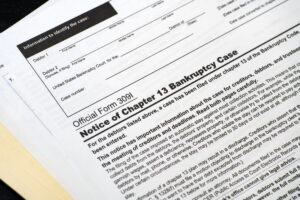At issue in this bankruptcy appeal is a tax debt owed by Brenda Marie Jones (“Jones”) to the California Franchise Tax Board (“FTB”). The bankruptcy court and the Bankruptcy Appellate Panel (“BAP”) found that the debt was not excepted from discharge in Jones’s Chapter 7 bankruptcy proceeding.
Although debts arising before a discharge order in a Chapter 7 proceeding are generally discharged, certain tax debts are excepted. A statute of limitations, known as the “three-year lookback period,” carves out tax debts arising from a taxable year ending on or before the bankruptcy petition is filed and for which the return was last due no more than three years before the petition is filed.
Because Jones’s tax debt arose more than three years before she filed her Chapter 7 bankruptcy petition, it would be discharged unless the lookback period was suspended by statute. The lookback period is suspended when, as relevant here, an automatic stay precludes the creditor from collecting on the debt. The only automatic stay provisions potentially at issue in this appeal are those that preclude creditors from pursuing collection actions against the property of a bankruptcy estate. The FTB argues that, as a consequence of Jones’s prior Chapter 13 bankruptcy case, the lookback period was suspended and the tax debt not discharged.
When the bankruptcy court confirmed the Joneses’ Chapter 13 plan, the estate property revested in Jones and became Jones’s property, thus lifting the applicable stay provisions. Since this revesting occurred before the tax debt came due, no stay precluded the FTB from collecting on the debt under Section 362 of the Bankruptcy Code. Consequently, the tax debt was not excepted from the Chapter 7 discharge, and the principles of equitable tolling do not apply to extend the lookback period as the FTB was neither precluded from collecting on the tax debt nor did it actively try to protect its claim.
Thus, the debt was discharged.
Affirmed.


